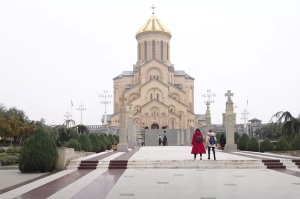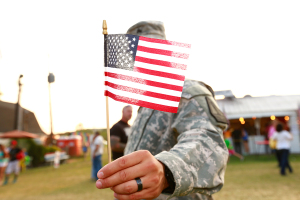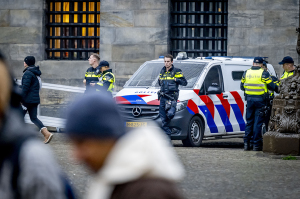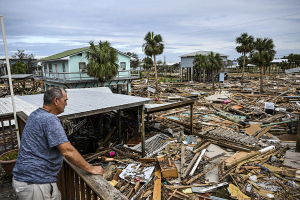Over 32K sign petition urging Biden to reinstate Nigeria on religious freedom violators list
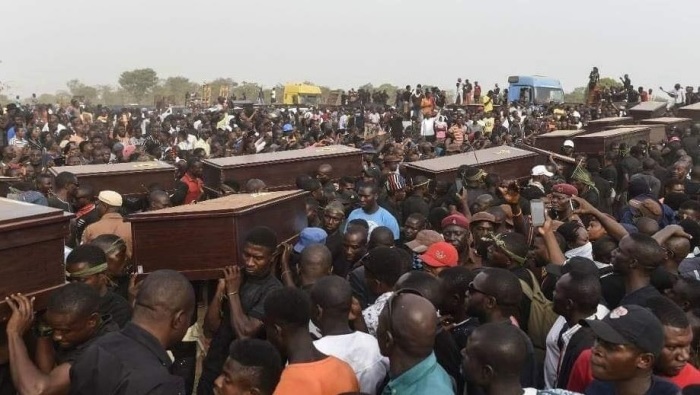
A petition signed by over 32,000 people was delivered to the White House Friday, calling on the United States government to reinstate Nigeria to its list of countries where religious freedom conditions are most concerning after the Biden administration removed Nigeria from the list last year.
The petition drive organized by Established by Revelation Media and Alliance Defending Freedom tells President Joe Biden that reinstating Nigeria to the State Department’s list of “countries of particular concern” will “send a powerful message that the religious persecution taking place in Nigeria is unacceptable.”
The effort comes as the State Department is gearing up to release its annual CPC designations. The CPC designation was mandated by the International Religious Freedom Act of 1998 to denote countries that engage in or tolerate egregious violations of religious freedom.
The designation aims to promote “policy options designed to bring about a cessation of the particularly severe violations of religious freedom.” Once those options “have reasonably been exhausted, an economic measure generally must be imposed.” The designation carries with it the possibility of sanctions.
In recent years, tens of thousands of Nigerians have been killed and over 2 million displaced by Islamic terrorist violence in northeast Nigeria, coinciding with the rise of groups like Boko Haram and the Islamic State West Africa Province. In the farming-rich Middle Belt states, Christian rights groups contend that predominantly-Christian farming communities are regularly attacked by radicals from predominantly Muslim herding communities.
While some human rights groups have claimed religious motivation behind attacks in the Middle Belt states and that such violence has reached the standard for “genocide,” the Nigerian government and other human rights watchdogs contend the violence in the Middle Belt is part of decades-old farmer-herder clashes and that “competing claims to land and other resources are at its core."
Nigeria was added to the CPC list in 2020 by the Trump administration. Advocates say Nigeria was the first secular democracy to be added to the CPC list. The Biden State Department removed Nigeria from the list last December, a move condemned by the U.S. Commission on International Religious Freedom.
“Last year, President Biden removed Nigeria from a religious persecution watch list. In the same year, Islamic terrorists, militants, and other extremists killed 4,650 Christians in Nigeria!” the petition states. “It is not right for America to leave these Christians behind. We must stop the killing.”
Open Doors USA, a watchdog group that monitors Christian persecution in over 60 countries, warns that more Christians were murdered for their faith in Nigeria than in any other country in 2021.
There has also been a reported increase in Christians abducted in Nigeria. The Anambra-based International Society for Civil Liberties and Rule of Law (Intersociety), a civil society group headed by a Christian criminologist, estimates that at least 4,000 Christians have been killed and 2,300 abducted in the first 10 months of 2022.
“It is time to stand against this violence and add Nigeria back to the Countries of Particular Concern list immediately,” the petition reads. “In the months of January 2021 to March 2022, over 6,000 Christians have been martyred in Nigeria, and approximately 4,500 Christians have been abducted in the same timeframe. Millions of Christians throughout the country, but especially in the North, live in fear that they might be next.”
Kelsey Zorzi, the director of advocacy for global religious freedom for ADF International, a legal nonprofit dedicated to defending religious freedom, stresses that the U.S. must “maintain pressure on Nigeria.”
“Removing Nigeria from the Country of Particular Concern list signaled an alarming disregard for the state of religious freedom in the country,” Zorzi said.
“The high level of support for this petition makes clear that there is a strong consensus for significant action to counter the religious freedom violations happening in Nigeria.”
In its annual international religious freedom report published in June, the State Department acknowledged that “insecurity was pervasive throughout the country and increased nationwide.”
"There was pervasive violence involving predominantly Muslim herders and mostly Christian, but also Muslim, farmers, particularly in the North Central, but also in the North West (where most farmers were Muslim) and South West regions," the report reads. "According to the Nigeria security tracker maintained by the Council on Foreign Relations, there were an estimated 10,399 deaths from violent conflict during the year, compared with 9,694 in 2020."
The Council on Foreign Relations estimates that 1,112 deaths were from “violence among ethnic groups, herdsmen, and farmers, some of which had implications for religion and religious freedom, according to multiple observers or, in the words of the council, 'sometimes acquires religious overtones.'"
About a month before Nigeria’s removal from the CPC, Secretary of State Antony Blinken met with Nigerian government leaders and "raised religious freedom issues.”
Nina Shea, a human rights lawyer and director of the Hudson Institute's Center for Religious Freedom, told The Christian Post earlier this year that the State Department is missing “the big picture of vulnerable Christian minorities of northern Nigeria being repeatedly attacked and driven from their villages by Muslim extremists and their agents who act with complete impunity."
"Authorities fail to investigate and prosecute the perpetrators of these large-scale atrocities, and moreover prosecute and threaten local journalists who report on them," she stated.
"There's an incomprehensible gap between the State Department's reporting and what desperate Christians on the ground are reporting to religious freedom advocates here. This gap reflects State's overreliance on sources that it and [United States Agency for International Development] funds, which in turn push a political narrative favored by State. That narrative says that northern violence is driven by a conflict over a scarcity of resources as a result of climate change."
















